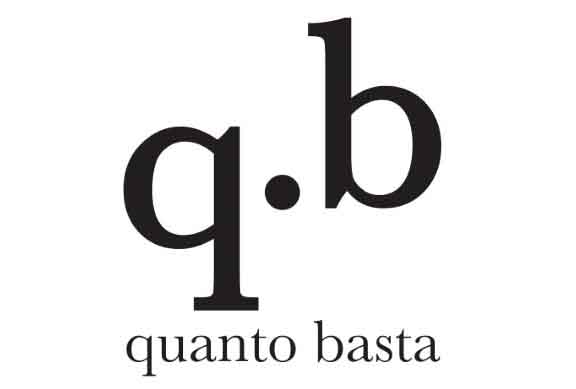
Quanto Basta — QB: L’arte di sapere quando è abbastanza
QB: The Art of Knowing When Enough is Enough
Basta: Una parola breve ma potente
Basta: A Short but Powerful Word
La parola italiana “basta” deriva dal verbo intransitivo bastare, che significa “essere abbastanza” o “essere sufficiente.” Questo termine, breve ma incisivo, viene spesso usato per indicare che qualcosa è sufficiente o adeguato per soddisfare un bisogno o una condizione.
The Italian word “basta” comes from the intransitive verb bastare, which means “to be enough” or “to suffice.” This short yet impactful term is often used to indicate that something is sufficient or adequate to meet a need or condition.
“Basta così, grazie”
to indicate that nothing more is needed
“Non ne posso più, basta!”
to express frustration or exasperation
Basta: Una parola versatile nella vita e in cucina
Basta: A Versatile Word in Life and Cooking
“Basta” è una parola estremamente versatile nella lingua italiana, usata in vari contesti, dal quotidiano alla cucina, dove quanto basta (q.b.) indica una quantità adeguata ma non precisa. Inoltre, può esprimere un tono deciso per interrompere un’azione, come in: “Basta litigare!”. La sua forza comunicativa la rende essenziale nel vocabolario italiano.
Basta is a highly versatile word in Italian, used in contexts ranging from everyday life to cooking, where quanto basta (q.b.) indicates an adequate but not precise amount. It can also convey a decisive tone to stop an action, as in: “Basta litigare!” Its communicative power makes it essential in Italian vocabulary.
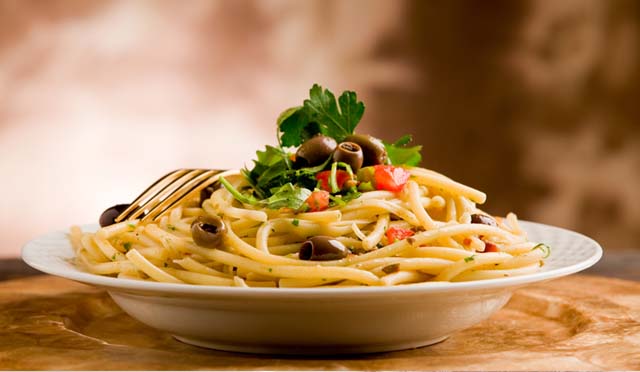
Q.B.: Il mistero in cucina
Q.B.: The Kitchen Mystery
In qualsiasi cucina italiana, sentirete spesso la frase: “Quanto basta.” Nelle ricette scritte, però, compare spesso solo come “Q.B.”
In any Italian kitchen, you’ll often hear the phrase: “Quanto basta.” In written recipes, however, it’s typically abbreviated as “Q.B.”
Durante le lezioni di cucina, questo misterioso “Q.B.” lascia sempre gli studenti perplessi. Si fermano, alzano lo sguardo dalle ricette e chiedono: “Q.B.? Che significa?”. Se vi trovate nella cucina di Claudia a Montepulciano, lei riderà e spiegherà: “Quanto Basta”, cioè aggiungere il giusto, secondo il proprio gusto personale.
During cooking lessons, this mysterious “Q.B.” always leaves students puzzled. They pause, look up from their printed recipes, and ask, “Q.B.? What does that mean?” If you’re in Claudia’s kitchen in Montepulciano, she’ll laugh and explain: “Quanto Basta,” meaning to add just enough according to your personal taste.
q.b.
In qualsiasi cucina italiana, sentirete spesso la frase: “Quanto basta.” Nelle ricette scritte, però, compare spesso solo come “Q.B.”
In any Italian kitchen, you’ll often hear the phrase: “Quanto basta.” In written recipes, however, it’s typically abbreviated as “Q.B.”
L’esperienza di Claudia: ad occhio e col cuore
Claudia’s Cooking: By Eye and from the Heart
Lo scorso settembre, con i miei gruppi, abbiamo trascorso un momento indimenticabile con Claudia nel suo ristorante, Il Covo. Abbiamo preparato i pici seguendo la vecchia ricetta di sua nonna. Abbiamo imparato a misurare e aggiungere le giuste quantità di farina, acqua, uova… e sale (quanto basta) per ottenere la consistenza perfetta dell’impasto.
Last September, with my groups, we had an unforgettable time with Claudia at her restaurant, Il Covo. There, we prepared pici following her grandmother’s old recipe. We learned to measure and add the right amounts of flour, water, eggs… and salt (quanto basta) to achieve the perfect dough consistency.
Claudia ci ha insegnato l’approccio pratico di sua nonna per fare i pici. Ci ha mostrato come tagliare pezzi di impasto, arrotolarli tra le dita e trasformarli in lunghi e rustici fili di pasta fresca. Dopo aver preparato un sugo profumato e saporito, abbiamo cotto i pici alla perfezione e assaporato ogni boccone di questo primo piatto semplice ma delizioso.
Claudia taught us her grandmother’s hands-on approach for making pici. She showed us how to cut pieces of dough, roll them between our fingers, and transformed them into long, rustic strands of fresh pasta. Once we prepared a fragrant, flavorful sauce, we boiled the pici to perfection and savored every bite of this simple yet delicious first course.
L’espressione — Ad Occhio
Un’altra espressione italiana che adoro è “ad occhio”. E no, non significa preparare un piatto di bulbi oculari! Ad occhio si riferisce a cucinare d’istinto, senza affidarsi a misurazioni precise o a una ricetta scritta.
Another Italian expression I adore is “ad occhio”. And no, it doesn’t mean whipping up a batch of eyeballs! Ad occhio refers to cooking by instinct, without relying on exact measurements or a written recipe.
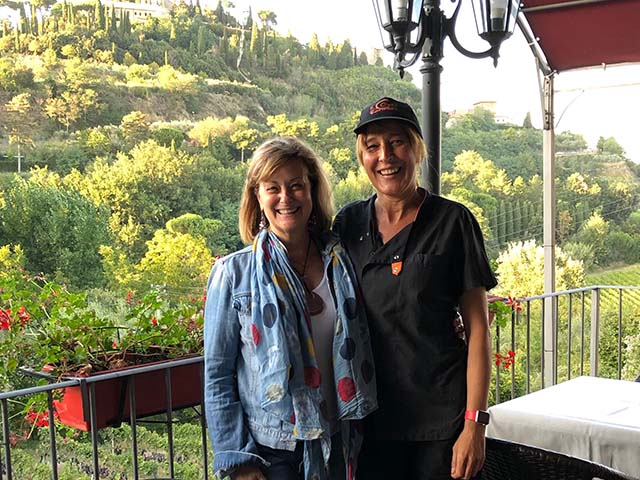
Sapori e tradizioni di famiglia
Flavors and Family Traditions
“Trascorrere del tempo con Claudia significa imparare non solo la cucina tradizionale italiana ma anche i segreti tramandati da sua nonna. Mi racconta spesso di essere praticamente cresciuta nella cucina della nonna e la sua passione è creare piatti appetitosi.
Spending time with Claudia means learning not only traditional Italian cooking but also the secrets passed down from her grandmother. She often tells me she practically grew up in her grandmother’s kitchen, and her passion is creating appetizing dishes.
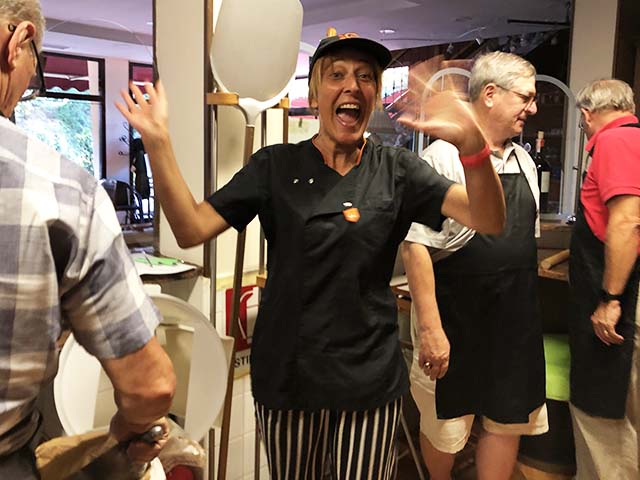
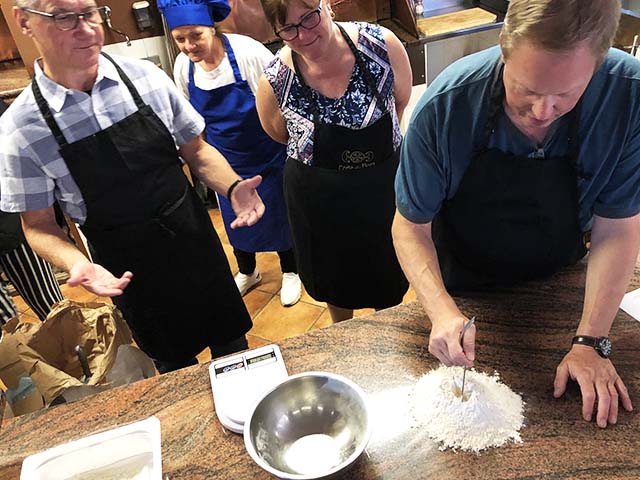
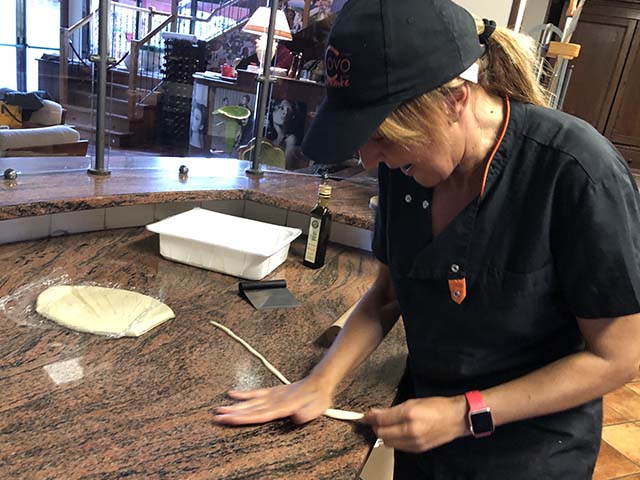
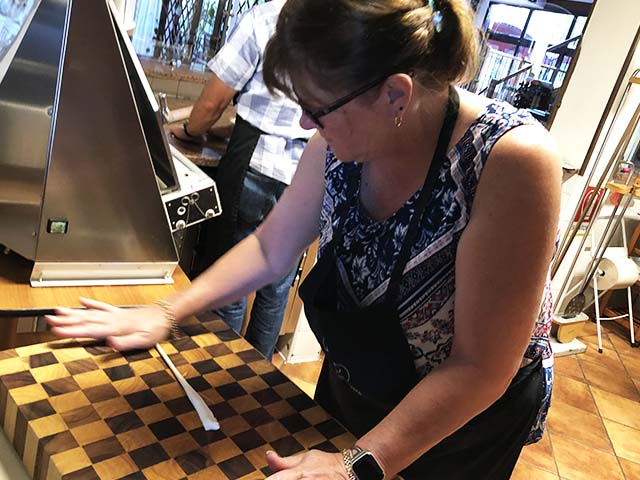
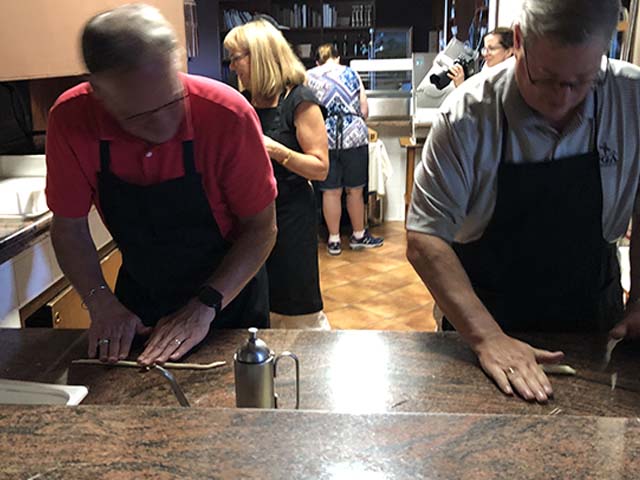
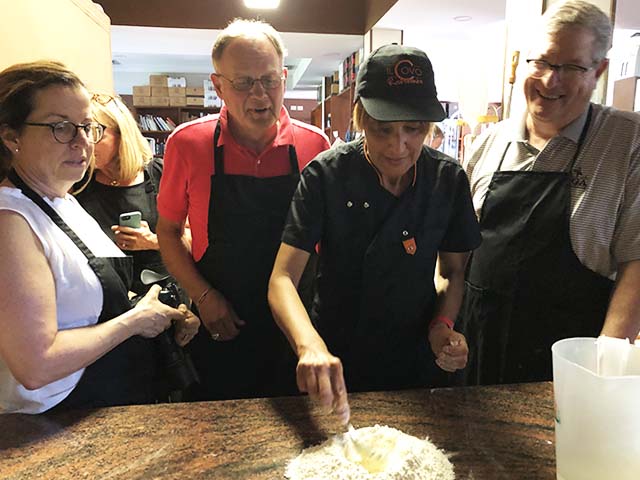
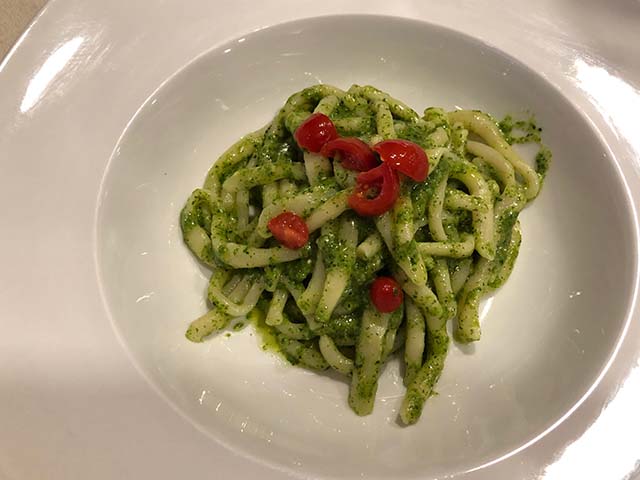
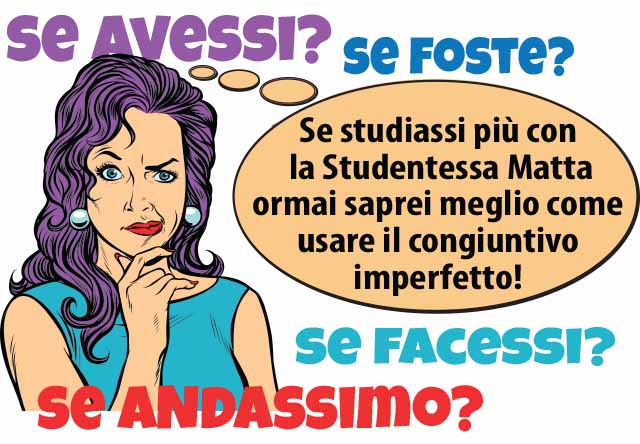

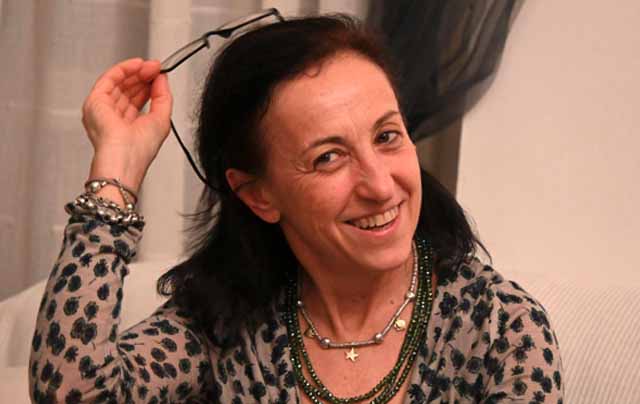








Fantastic post. È così abbastanza.
You will be missed in the Bay Area good luck in Austin. Keep the blog coming.
Non vedo l’ora!
San Franciso: Bastava.
Austin? E troppo! Tutto lo stesso, buon pasto.